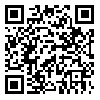Volume 9, Issue 1 (2019)
ORMR 2019, 9(1): 49-72 |
Back to browse issues page
Download citation:
BibTeX | RIS | EndNote | Medlars | ProCite | Reference Manager | RefWorks
Send citation to:



BibTeX | RIS | EndNote | Medlars | ProCite | Reference Manager | RefWorks
Send citation to:
danaee fard H, Ghasemi S A, kordnaeij A, khaef elahi A. Understanding Psychological Safety Formation Process in Iranian Governmental Industry Managers: A Study on Glaser's Approach in GT. ORMR 2019; 9 (1) :49-72
URL: http://ormr.modares.ac.ir/article-28-17902-en.html
URL: http://ormr.modares.ac.ir/article-28-17902-en.html
1- Not , hdanaee@modares.ac.ir
2- Affiliation
3- Not
2- Affiliation
3- Not
Abstract: (6024 Views)
Psychological safety is a critical base for individual, organizational and national performance, since managers who feel psychologically unsafe, do not have essential motives for productivity and excellence. It is reality of organizations that there are stage of jealousy, spitefulness, enmity, power games of peoples and groups. In these situations, it is important to bring about psychological safety for people in organization. Psychological safety means to feel safety in mind, emotion and behavior from side of other peoples and present personal opinions and do the jobs, without any anxiety and fear in organization. Many studies emphasis on effects of individual psychological safety based on personal, organizational and national variables, but there is not a quantitative and experimental research on formation of psychological safety in managers, especially among Iranian governmental industries. This research has taken Glaser's approach in GT to theorize process of forming psychological safety in Iranian governmental industries. Results of this research show that organizational factors, superior's leadership style, relationships between peers and subordinates and their competencies, eco-social climate of society, organizational atmosphere and psychological capital of everyone affect individual psychological safety. It can enforces job engagement, job satisfaction in managers and reduces stress and anxiety and willingness to expatriation in them.
Article Type: Qualitative Research |
Subject:
Organizational Behavior and Human Resource Management
Received: 2018/03/18 | Accepted: 2019/06/2 | Published: 2019/10/2
Received: 2018/03/18 | Accepted: 2019/06/2 | Published: 2019/10/2
Send email to the article author
| Rights and permissions | |
 |
This work is licensed under a Creative Commons Attribution-NonCommercial 4.0 International License. |







